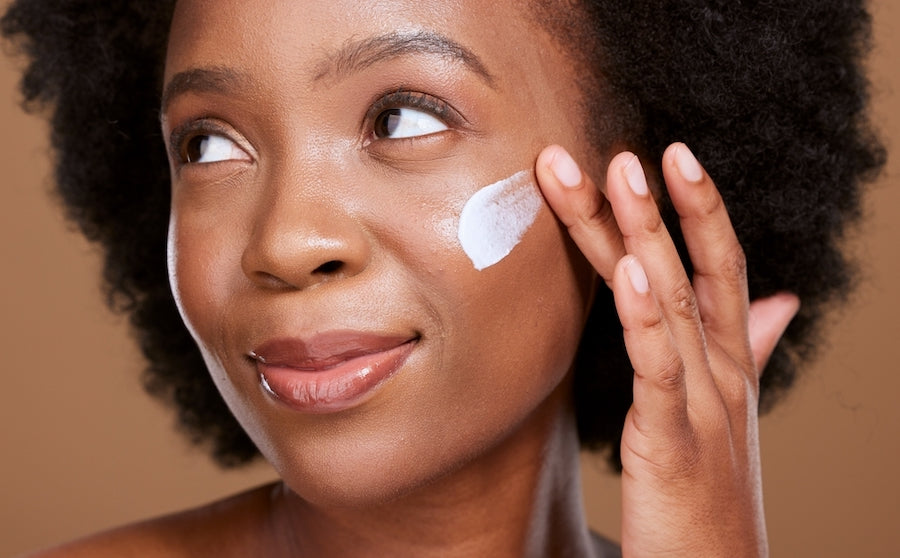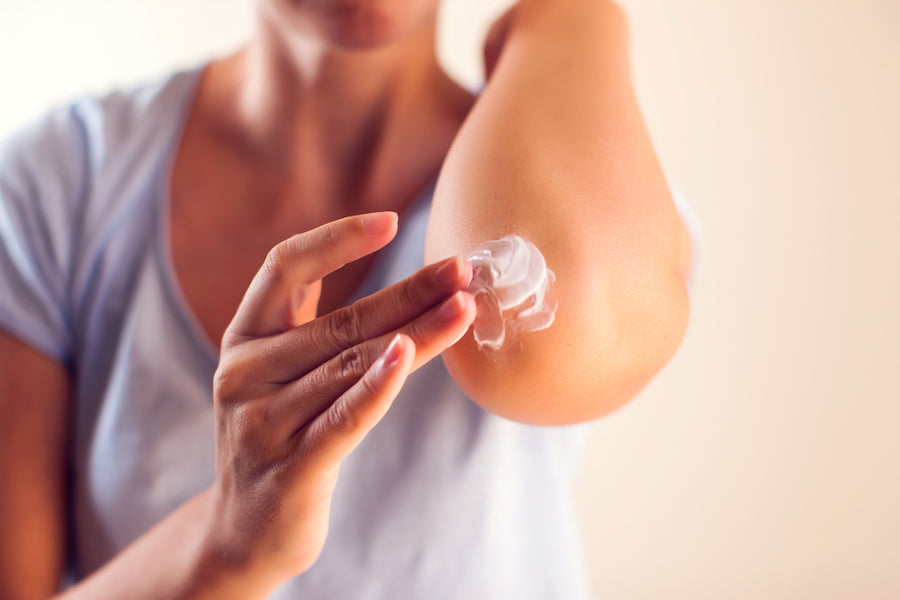
How to Know If Your Skincare Routine is Working for You
Are you curious if your skincare routine is working its magic? Not all faces have the same skincare needs, so it is easy to feel overwhelmed by decisions when it comes to your skincare routine.
Yes, skincare really does work, but only if you find the right products for your complexion. Feeling underwhelmed by the results or like your creams and products have stopped working, or even worsened your condition?
Here are some common reasons your skincare may not be working as you hoped:
- Your skincare regime is mismatched for your skin type
- You use subpar-quality products
- You haven’t met all of your complexion’s needs
- You use products to excess
- You haven’t given your skincare the necessary time to work
- Your skin has built a tolerance toward specific active ingredients
- Your hormones and skincare change with time and age
- You haven’t factored in seasonal needs
- Your products may be expired or improperly stored
Rest assured, this article will give you all the guidance you need to revise your skincare routine and determine what will work best for you. With detailed advice on avoiding common pitfalls with skincare, you will be better equipped to create a tried-and-true skincare routine.
How to Know What Skincare to Use for Your Face
Considering your skin type when selecting skin care products and creating a routine allows you to customize everything to your skin’s specific needs and any issues you want to address. Your skin type is based on the amount of oil, also called sebum, your skin produces. The oiliness level of your skin can change over time and can also be impacted by things like stress, hormones, aging, genetics, and environmental factors.
Many skincare products will classify themselves based on skin type, offering the guidance you need once you have determined what your skin type will react best with. But how do you know which will work with your face if you aren’t even aware of your complexion type?
Let’s take a look at the five main skin types so you can determine which applies to you:
Oily Skin
This skin type experiences more oil production than the others, making skin appear shiny and greasy, especially in the T-zone area (forehead, nose, and chin). Those with an oily skin type tend to experience more acne, have larger pores, and are prone to whiteheads and blackheads.
Individuals with oily skin are commonly drawn toward products with drying properties. While their instincts to do so aren’t wrong, a common reason such skincare products don’t work as desired is that they strip too much moisture and nutrients from the skin. In turn, your skin produces even more sebum to compensate.
Alternatively, people with oily skin will find that well-balanced products work best. For example, the Detox + Renew Charcoal Clay Mask balances naturally drying ingredients like charcoal and bentonite clay with CBD and hemp seed oil, both which can both nourish and help regulate sebum generation.

Dry Skin
With a dry skin type, your skin produces less natural oils than the other types of skin, causing your skin to look dull and even flaky or rough. Dry skin can often feel tight or itchy and can be more prone to fine lines and wrinkles. As a result of the lack of sebum, dry skin types lack the lipids needed to retain moisture and build a protective shield against external influences, making the skin more susceptible to environmental factors.
For dry complexions, products featuring high-end, hydrating skincare ingredients work best. Take, for example, the Plant Stem Cell Skin Elixir, enriched with plant stem cell, marula and grape seed oil, and CBD.

Normal Skin
The definition of a normal skin type lies in between the previous two skin types in terms of not being too dry or overly oily. For a normal skin type, the skin produces enough sebum to keep the skin hydrated without causing a greasy look or feel. Those with this type of skin generally don’t experience many blemishes and are not prone to flaky, rough skin. Normal skin type typically comes with smaller pores than oily skin and a smoother skin texture. Such individuals will find that a well-rounded skincare routine will work for them best.
Combination skin
As one of the most common skin types, combination skin is a mixture of skin types in which some areas of skin are oily while others are dry. The usual areas prone to oiliness with combination skin include the forehead, nose, and chin, while the cheeks or other areas feel normal, dry, or flaky. For many people, having combination skin is tricky due to the different skin needs and sensitives in such close proximity to each other.
Sensitive skin
Last but not least on the list is sensitive skin. This skin type is not determined by how much sebum the skin produces, as seen by the fact that people with dry or oily skin can have sensitive skin. Sensitive skin is known as skin that becomes irritated or inflamed easily. People with this skin type have telltale signs like burning, stinging, or itching when applying products. They can also experience adverse reactions such as bumps or peeling with certain products or ingredients.
If you have sensitive skin, it’s paramount that you avoid subpar ingredients, which leads us to our next section . . .
How to Distinguish High-Quality Products from Low-Quality Products
Pay Attention to Ingredients
Look at the amount of active ingredients versus inactive - If your skincare products fail to work, it could be because their formulas rely heavily on ineffective ingredients with the much-desired ingredients being barely there. For this reason, check your ingredient labels to ensure they contain high concentrations of the ingredients your skin type likes and low amounts of "fillers," aka inactive ingredients. While some inactive ingredients are necessary to enhance important components in skin products, they should not be the primary ingredients.
Your skincare products may not work due to counterproductive ingredients - Your skin is your body's biggest organ, so for every skin type, it is essential to use products free from toxins and chemicals. Harmful ingredients like fragrance, alcohol, and sulfates are included in many skincare products, hiding behind names you may not recognize. Not only are these ingredients harmful to your skin but also your overall health, so make sure to do your research and use high-quality clean skincare brands.
Therefore, it’s valuable to shop with a trusted brand, like Botanika Life. We pride ourselves on simple botanical formulas created from high-quality plant-based elements. Moreover, we publish third-party lab results for our skincare products to further verify that anything you put on your face is pesticide-free.
Other Reasons Your Skincare Products May Not be Working
You haven’t met all of your complexion’s needs
Are you wondering why your face is not clearing up? Or does skincare really work? If you haven't met the needs of your specific skin type, then it is not likely you are pleased with your current routine and its results. Staying hydrated and protecting your skin from environmental factors significantly impacts your complexion. You also need to ensure you are using high-quality products with the right ingredients for your skin.
You use products to excess
More is not necessarily better when it comes to skincare products. For instance, using too much cleanser can dry out your skin. Similarly, if you use too much moisturizer, over time, your skin may start producing less of its own moisture. For any skin product, it is a good idea to follow the instructions to have it work how it’s intended.
You haven’t given your skincare creams and products the necessary time to work
Consistency and giving your products time to work are key when it comes to seeing results. The natural skin cell cycle takes 30 days. Whether your goal is to reduce acne breakouts, achieve a more radiant glow, or reduce fine lines, you have to give the ingredients time to work. According to dermatologists, it can take 3 to 4 months to see the full results of a skincare product on your skin.
Your skin has built a tolerance toward specific active ingredients
If you are wondering, " Why is my face cream not working on my skin?", it's possible that your skin has developed a tolerance to the active ingredients in your products. It may be time to give your skin a break from your current routine and try something new.
You may be inadvertently undermining your skincare by mixing incompatible products and ingredients
Mixing the wrong skincare ingredients can counteract what is in your products and cause irritation. For example, retinol, which is a common collagen-boosting, anti-aging ingredient, can cause skin issues when mixed with chemical exfoliants like benzol peroxide. Vitamin C is another skin-boosting ingredient that you need to be mindful of when mixing with other products, which you can get the details about here.
Your hormones and skincare change with time and age
From dryness to acne and loss of collagen, changing hormones throughout the month and with age can impact the feel and appearance of your skin. Hormones can also impact whether your skin care works. During women's menstrual cycles, estrogen levels peak during the first half of the cycle, often leading to clearer and more even skin. However, the second half can induce skin sensitivity and breakouts due to the rise in progesterone levels.
Having good and bad skin days is normal, but understanding how hormones affect your skin can help you adjust your routine for the best results.
You haven’t factored in seasonal needs
Cold winter air can make the skin feel and look dry or dull, while the humidity that comes with spring and summer can increase oil production and give it a greasy look. Since temperatures and moisture change with the seasons, it may be beneficial for you to adjust your skincare routine accordingly. Switching to lightweight products during summer or when traveling to a humid climate can combat oily skin, while opting for ultra-hydrating serums and moisturizers can help combat the seasonal change to colder winter months.
Your products may be expired or improperly stored
Did you know that how you store your skin care products can play a big part in their shelf life? If your creams and serums are no longer working, check the expiration date. Also consider when you opened the product and the environmental conditions it has been exposed to.
Over time, active ingredients lose their effectiveness and expired skin care products can be a breeding ground for harmful bacteria and microbes that can cause redness, itching, rashes, and infections.
CBD and other skin care products should be kept in a cool, dark place away from direct sunlight. In general, products are made to last up to 30 months on a shelf and 12 months after being opened.
You are layering your skincare wrong
The order of your skincare routine is more important than you may think. For example, the concentration and ingredients of serums, moisturizers, and toners can impact whether you keep your face clear of breakouts or target fine lines and wrinkles effectively. Understanding the order of operations is a must when planning your routine and buying products.
Give the Skincare the Nourishment it Needs with Botanika Life
It is normal not to know exactly which skincare products to use, which is why Botanika Life offers products for every skin type. Our vegan beauty serums, cleansers, and more are all made from organically grown, plant-based ingredients.
With natural ingredients like full-spectrum CBD, Vitamin C, and squalane oil, your skin is protected and rejuvenated. Go beyond the surface to penetrate and rejuvenate the skin for lasting results with all your complexion’s needs in mind. From nourishing cleansers to hydrating toners, moisturizers, and serums, Botanika Life has what you need to craft a skincare regimen that truly works.

By Emily Wegener
With a unique background as an Integrative Nutrition Health Coach, Masters Degree in Teaching and experience in Psychology, Emily spends much of her time researching and trying out new holistic healing modalities.


